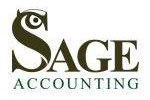HMRC answers questions on 30-day CGT reporting
Earlier this month, we reported problems that individuals have experienced when trying to offset overpaid capital gains tax (CGT) on property disposals against the self-assessment tax liability. We also reported how to work around the issue. Now, HMRC has answered a number of further questions from the accountancy industry. What new information has come to light?

Where a UK residential property is disposed at a gain and a 30-day CGT return is required, an estimate of the tax payable on the gain is also required in the same timeframe. In the last month, it has transpired that where the payment of the estimate is too high, HMRC's computer system currently does not automatically offset the overpayment against the self-assessment bill. The only way to recover the overpayment is to either resubmit the 30-day CGT return (where this is possible), or contact HMRC to request a manual offset. HMRC has now responded to a number of queries covering a range of scenarios from several professional bodies by producing a helpsheet. The most noteworthy of these are as follows:
- the 30-day return cannot be amended once a self-assessment tax return has been filed;
- where the initial estimate was too low, no interest will be charged unless the estimate is found to be “unreasonable”;
- where a 30-day return is amended and there is an overpayment, there is a section on the return to request a repayment. However, unless the most recent payment on the system was made using a card it will not be automatically refunded, and HMRC must be contacted to request a refund - there is no section to include bank details yet.
Related Topics
-
Directors’ fees - can you escape PAYE?
You’ve been asked to join the board of a company in a purely advisory role. For tax and NI efficiency you want your fees to be paid to your own company. Does this arrangement fall foul of HMRC’s off-payroll rules?
-
P46 (car) deadline
-
Filing deadline for self-assessment tax returns

 This website uses both its own and third-party cookies to analyze our services and navigation on our website in order to improve its contents (analytical purposes: measure visits and sources of web traffic). The legal basis is the consent of the user, except in the case of basic cookies, which are essential to navigate this website.
This website uses both its own and third-party cookies to analyze our services and navigation on our website in order to improve its contents (analytical purposes: measure visits and sources of web traffic). The legal basis is the consent of the user, except in the case of basic cookies, which are essential to navigate this website.